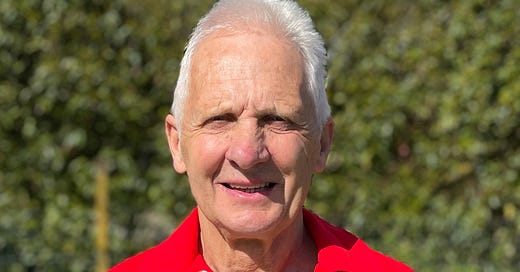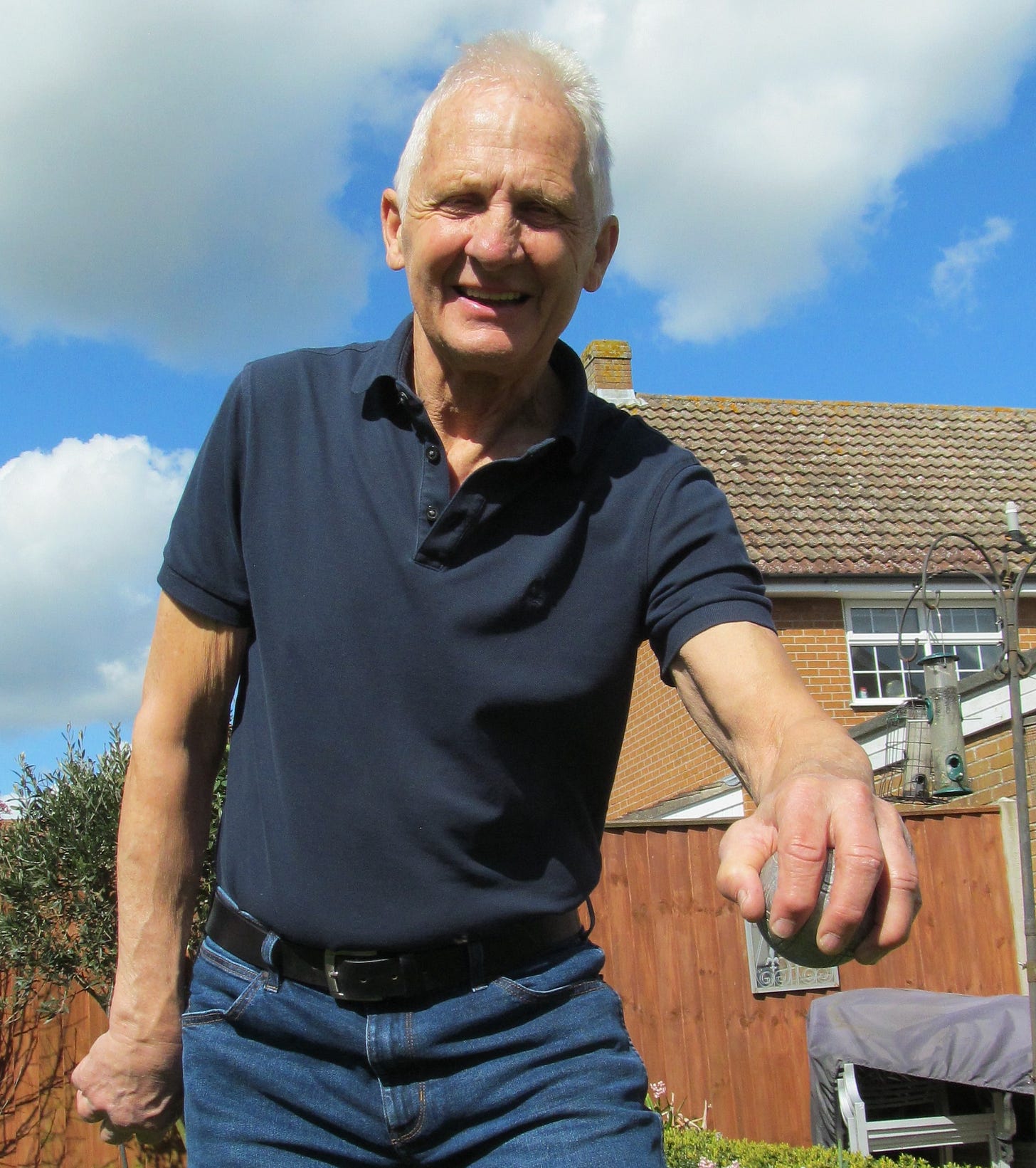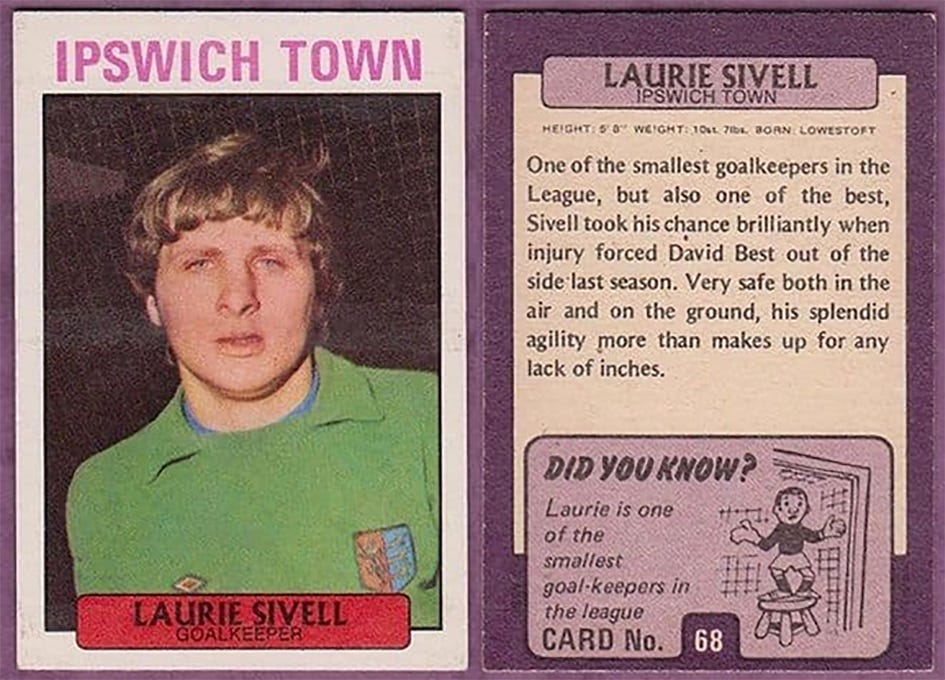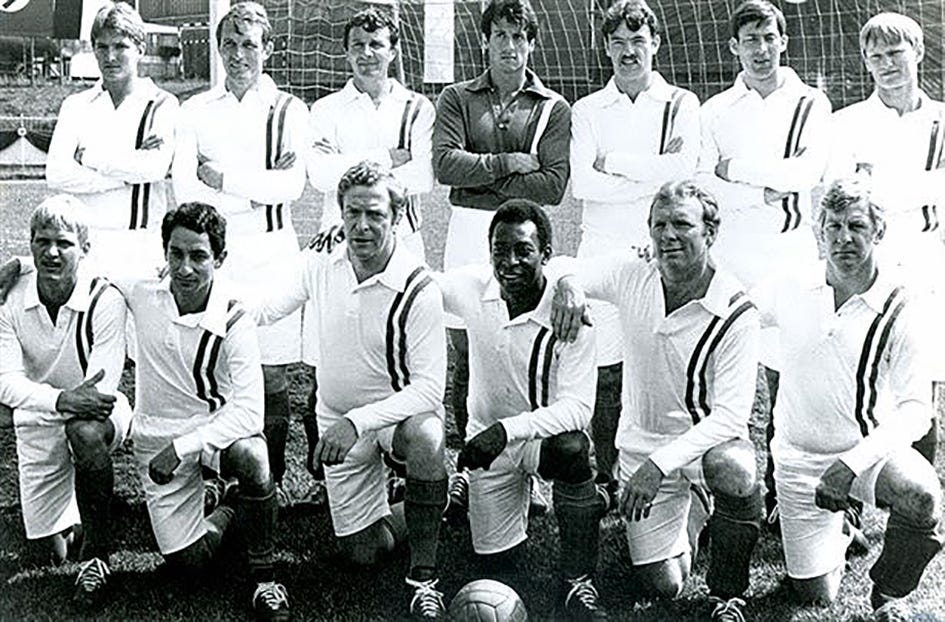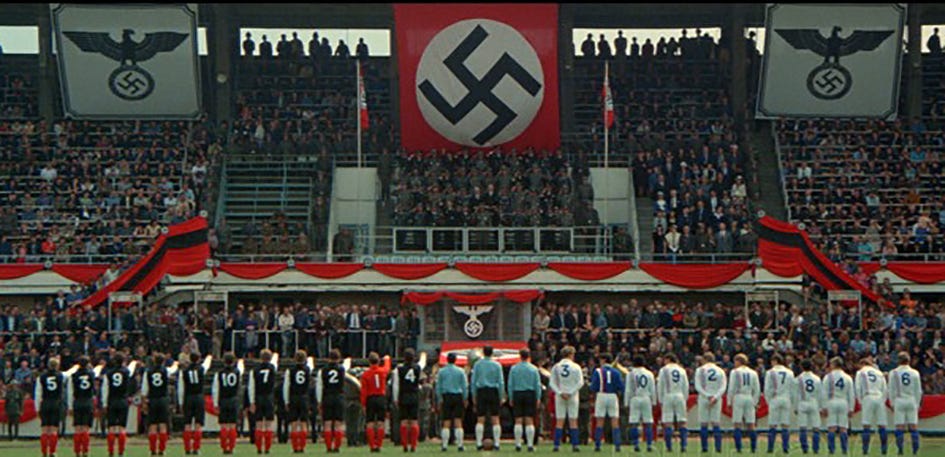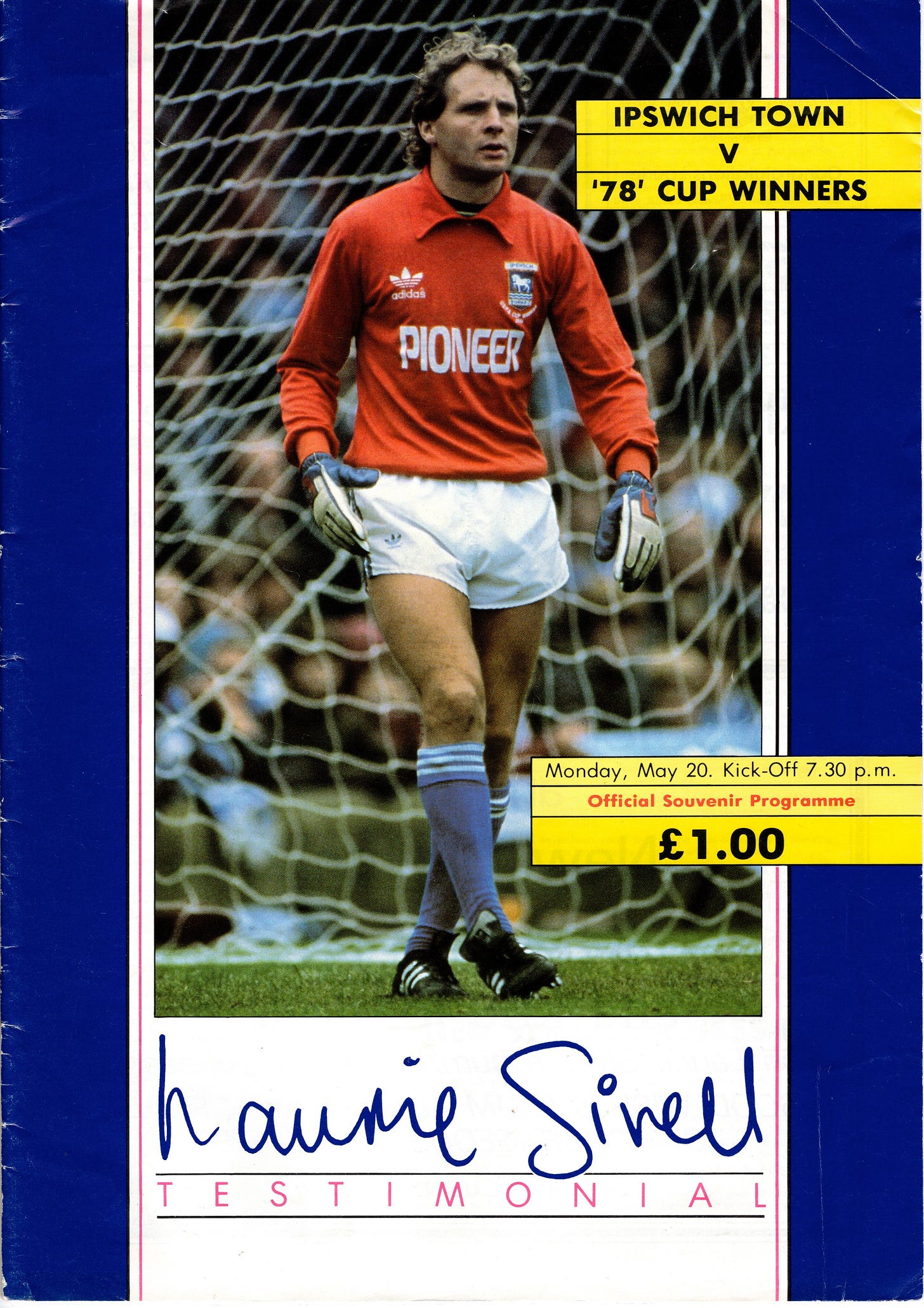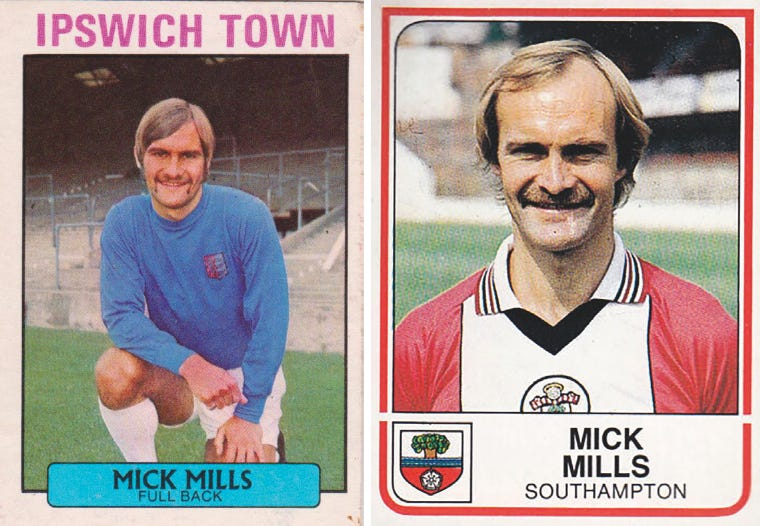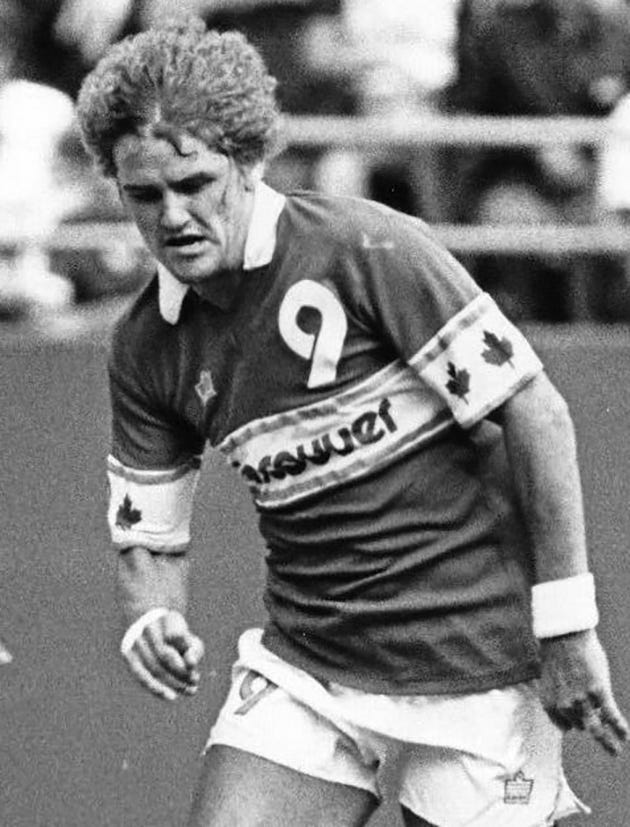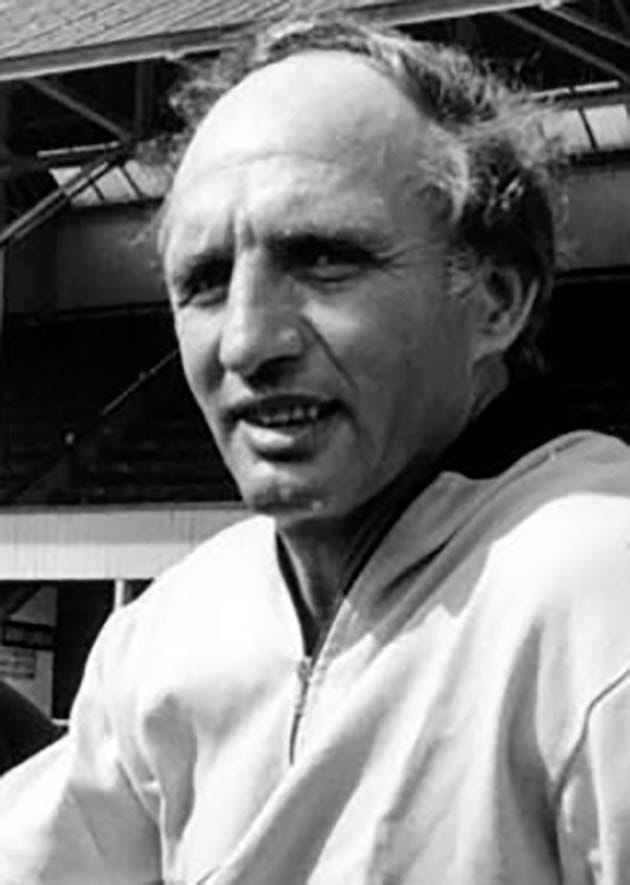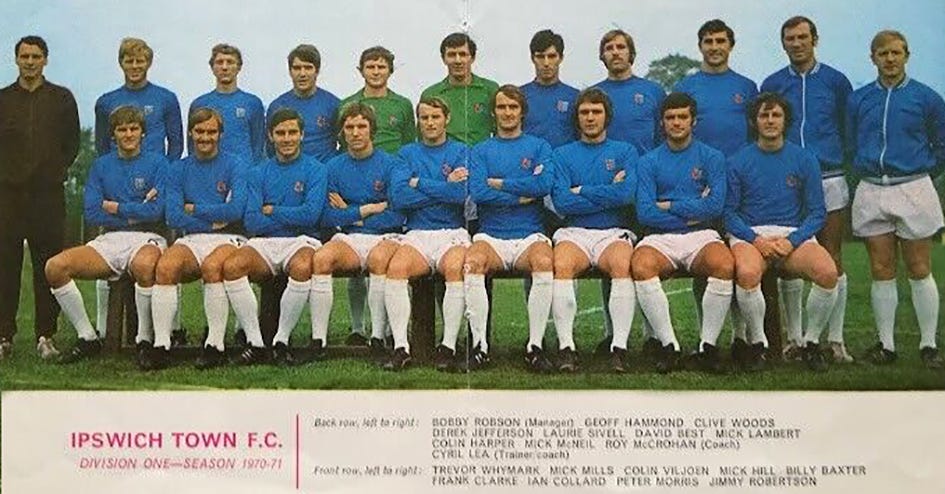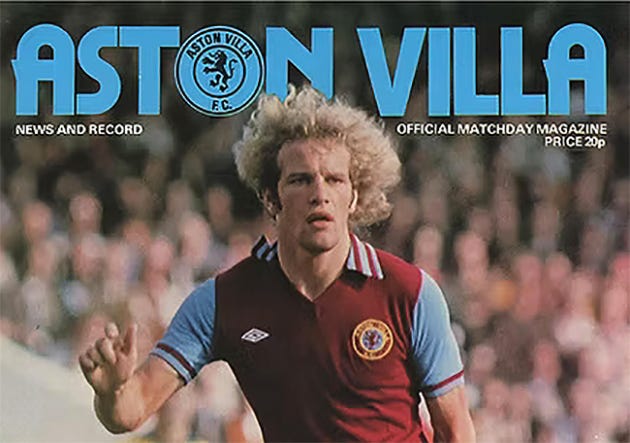Retired footballers can invariably be found on the golf course, but former Ipswich Town goalkeeper Laurie Sivell is also keeping his eye on a different ball – or boule to be more precise. More than 40 years after leaving the professional game, the diminutive shot-stopper has been putting his sporting talents to good effect in the Suffolk Coastal Petanque Alliance as part of his local pub side.
Bizarrely, even though he was knocking on the door of 70 when he took up the sport, it came thanks to one of his European adventures with Bobby Robson’s successful Ipswich side of the 1970s.
The Tractorboys have 26 top-flight seasons to their name and Sivell was at Portman Road for 16 of them – helping them to 10 top 10 finishes, including two seconds, three thirds and two fourth-place finishes. That brought the chance to test themselves against some of Europe’s elite, with Town playing in the UEFA Cup or European Cup Winners Cup every season, bar one, between 1973 and 1983.
Even though for much of his career Sivell was understudy to David Best and Paul Cooper, he did manage to rack up almost 200 first-team appearances in a near 600-match career at the Suffolk club between 1967 and 1984.
“There was only one substitute allowed in league matches for much of my time so I played for the juniors or reserves when I wasn’t in the first XI,” recalled Sivell. “However, in Europe we could have five and we always included a goalkeeper on the bench. That meant I was part of the squad for most of those amazing European nights. We travelled all over Europe and in those days, wherever you went the home team would give you a gift representative of their area. I got a lovely set of Delft pottery when we went to Feyenoord and in St Etienne they gave us all a set of boules. They are all packed away somewhere at home but, funnily, enough I dug out the boules the other year and started using them when I noticed people were playing at my local. It’s great fun and is both competitive and social. I love it!”
Ipswich won the UEFA Cup in 1981, although Sivell played just once in that campaign, a 2-0 defeat in Czechoslovakia to Bohemians Prague. He was also between the posts for their 1973/4 run, which was ended in the quarter-finals in East Germany when Lokomotiv Leipzig went through 4-3 in a penalty shoot-out. Sivell also played against FC Twente and AS Roma but was with the club during other European flights to teams including Real Madrid, Lazio, Barcelona, AS Roma, Club Brugge, Las Palmas, Grasshoppers Zurich, AZ67 Alkmaar, Wacke Innsbruck, Skeid Oslo, Aris Saloniki, Widzew Łódź and FC Köln.
That has meant Sivell has an impressive collection of stamps in his passport, as well as two ‘international’ appearances, having turned out for Ipswich against the national teams of New Zealand and Algeria in friendlies. Thanks to manager Bobby Robson’s love of exotic summer tours, Sivell also has some more unusual destinations in his holiday scrapbook.
“Every pre-season we’d go somewhere special,” he said. “Bobby loved his club holidays! We went to Bermuda, Canada and the Caribbean. We even went to Hawaii one year and somehow managed a full week there without even seeing a ball, let along playing a game!”
Those were not Sivell’s main international appearances though, that came in 1981 – or should that be 1941 during the Second World War? Yes, that finished six years before he was born but as Sivell, now 74, explained, he enjoyed a tiny bit of time travel during the closing years of his career.
A bizarre tale included one of the most memorable goals in football history when a Brazilian legend, masquerading as a Trinidadian, scored a sensational goal past an Englishman, pretending to be German in a match played in Hungary, disguised to look like France.
The Englishman was Sivell, very much a son of Suffolk, with no German blood that he is aware of, but he was drafted into the Nazi team in the iconic Escape to Victory film.
Sivell explained: “Bobby Robson called us in one day to make a strange offer. He was friends with a film producer and asked if any of us fancied going to Hungary for a couple of weeks to help out with a film that needed some footballing expertise. None of the internationals could go but there were quite a few of us volunteered. It was fantastic, we ended up over there for about six weeks, all expenses paid and with our families.
“We didn’t have a lot of idea about what it was about other than there was some big stars involved. So it proved as we were working with Sylvester Stallone, Michael Caine and Pele among others. It was a real experience and I made a good friend in Tim Piggott-Smith, who went on to star in Jewel in the Crown and won a BAFTA. We were there to offer advice to help make the football scenes more realistic, as well as playing our parts as footballers in the actual match action.”
As well as Sivell and Pele, other footballers included his Ipswich teammates John Wark, Russell Osman, Robin Turner and Kevin O’Callaghan, plus an array of players from around the world – Osvaldo Ardiles, Kazimierz Deyna, Paul Van Himst, Co Prins, Søren Lindsted, Hallvar Thoresen, Werner Roth, Bobby Moore and Mike Summerbee. Kevin Beattie and fellow Ipswich goalkeeper Paul Cooper were also involved but only as ‘stunt doubles’ for Caine and Stallone.
“Somehow, I ended up playing the German goalkeeper, Schmidt,” recalled Sivell. I have no idea why, but guess my blond hair and blue eyes were a suitable Teutonic feature.”
Part of the story was that Pele would score a last-minute equaliser with a spectacular overhead kick and, despite many eye-witness accounts stating he had scored it first take, Sivell said that had not been the case.
“We couldn’t replicate that shot in the actual game so instead they surrounded us both with cameras and then someone would toss the ball up for Pele to do his kick. A few missed and I managed to save some – not intentionally but I guess old habits die hard!
“He eventually scored and they then stitched together several different parts of his various attempts. It was all clever stuff and looked the part when it was shown – I can still claim I saved it in real life though!”
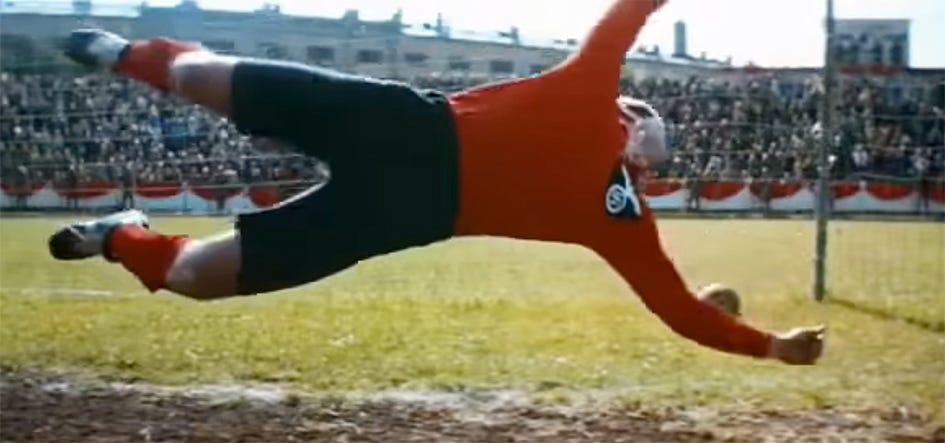
Sivell has fond memories of the Brazilian legend, less so of the other star of the film. “Pele was great, a really wonderful man and had time for us all. Stallone was the complete opposite. He had no time for us and didn’t mix with us at all, jetting off at weekends elsewhere. Michael Caine also did not mix with us socially but was a decent enough chap to be around. I did try to offer Stallone some advice and coaching tips about how to look like a goalkeeper but he didn’t have a clue and kept wanting to bounce the ball and run about with it like it was basketball.”
Despite the chance to mix with the stars in all-expenses-paid luxury, Sivell admitted the Ipswich lads felt a little hard done by when they learned what some of their team mates were earning.
“We seemed to be doing all the hard work and when we heard the others were getting paid more, we decided to ask for a rise. John Huston was the director, an absolute Hollywood legend, and Freddie Fields was also involved. One of the lads went to ask Freddie about getting more money. He went absolutely berserk and started swearing and really laying into us. In the end he calmed down and we negotiated a pot of money to share between us. To do that we had to give up any rights to royalties in the future – what a mistake that turned out to be! Forty-odd years on it still gets shown and is always popular.”
One player whose life could have been changed forever was Osman. Sivell said: “Russ obviously impressed, handsome bugger that he is, because he was tapped up and asked if he wanted to move to America as an actor. I didn’t get the same offer unfortunately…
What Sivell did get was some souvenirs of an incredible period in his career. “The cast all signed a ball and I got to keep my German goalkeeper shirt, shorts and socks. I also got a signed script, all of which I have kept. Even now, 40 years after I retired, I still get pictures through the post and requests for my autograph – most are from fans of the film rather than Ipswich fans!”
Sivell joined Ipswich as an apprentice in 1967 and made his first-team debut at Anfield in March 1970 after impressing by keeping 12 clean sheets for the reserve and youth teams, conceding just 12 goals in 22 games. Despite his lack of inches – he was just 5ft 8.5in tall at the height of his career – Sivell notched up more than 500 games for Ipswich Town’s first, second and youth teams, including almost 200 in the First Division between 1970 and 1984.
That small stature was a constant torment to Sivell who recalled: “I was always called “Little Laurie” and every report saying I was diminutive did affect my confidence but I was very agile and that compensated in part for my lack of inches.”
In Sivell’s testimonial brochure, Bobby Robson said: “He was little but good, short but courageous, small but with wonderful agility and a great pair of hands. I always called him sticky fingers. If he had been six inches taller, he would have been one of the League’s greats.”
Robson’s predecessor Bill McGarry did try to add to Sivell’s stature in bizarre fashion. “He would have me hanging from the rafters under the stand after training to try to make me taller,” said Sivell. “It gained me an inch but also meant I had the longest arms of anyone in British football! He’d have stood me in a bucket of fertiliser if he could, he was so desperate for me to grow taller.
“My height was a huge disadvantage throughout my career. Most goalkeepers at that time were six-footers and I scraped my way to five-foot-eight and a half. People ask if I’m jealous of the rewards players get nowadays but I say good luck to them. If that’s what clubs are offering, grab it while you can.
“Would I have preferred to have played nowadays? No. At my height I wouldn’t have got a look in with the six-foot seven and eight giants. The timing for me was just right and football gave me a good enough life.”
So why would did the self-confessed ‘shortie’ even consider playing in goal?
“I’ve no idea why I became a goalkeeper really. I’ve just always played there since I was a kid – probably because I was smallest and no-one else wanted to play in goal! My teacher got me a trial at Ipswich when I was 15. I joined as an apprentice in 1967 when I was 16 and I was there more than half my life, leaving after 17 years.”
Incredibly, one other player appeared in both Sivell’s first and last matches in an Ipswich shirt. Mick Mills lined up in front of him at left-back on his debut in a 2-0 defeat to a Liverpool side just starting to build their first great team of the 70s, including Ray Clemence, Peter Thompson, Ian Callaghan, Chris Lawler, Tommy Smith and Emlyn Hughes.
“After the match Thompson kindly showed me round the stadium, which was a really nice touch. Players in those days had a real affinity for their club. He was so proud of Anfield,” recalled Sivell.
His final first-team appearance came in February 1984 but by this time Mills was in the colours of visitors Southampton, who inflicted a 3-0 defeat on the Tractorboys.
“I already knew my days were numbered after I had my cruciate repaired in 1980. I knew I was starting to struggle and had just had enough. I didn’t think I could do it any more. Even so, I had no idea what I was going to do, It was a scary time.
“Norwich asked me to go there but I just didn’t fancy it, although I did look after their u10s with Keith Rudd for a short while. I spent a few months at Beccles Town in the Anglian Combination. I played up front and remember scoring a cracker from 20 yards. But then my knee went completely so I hung up my boots.
“A bit later I went to Lowestoft Town as assistant manager to Jimmy Campbell. He left mid-season and I took over until the end of the season. One day our goalkeeper couldn’t make it so I turned out for them. I let in three goals but we won 7-3 and that was the last time I played. I left at the end of the season as I wasn’t cut out for management. I couldn’t hack having to tell my mates that I was dropping them!
“I never wanted to stay in football, I’d just had enough of it. Looking back, I maybe should have persevered and become a goalkeeping coach. In those days clubs didn’t have them but there was a desperate need. Throughout my career I had no specialist help and everything had to be self-learned.”
With football all he had known throughout his working life, it left Sivell rudderless. “I just wasn’t prepared for life outside football and had no idea what to do,” he said. “Lowestoft was a real fishing town and I had quite a few connections in that industry, having lived there all my life. I set up a little business supplying fish to hotels, pubs and restaurants. It turned into a nice little earner and I even took fish to the canteen at Portman Road, so I could keep in touch with the lads.
“However, in the 1990s when the recession started to bite, it was a real struggle getting firms to pay their bills so I stopped that and bought a van instead. I got a couple of pitches near London and everything was cash over the counter, which was so much easier and more reliable. I’d get my fish in Lowestoft at 2am on a Thursday and drive down to Little Chalfont to set up in a side street next to a row of shops. I’d work all day and then stay over at a mate’s before moving to another site in Eastcote.
“It was always busy and I loved it. I had to finish that 10 years ago when I was diagnosed with prostate cancer and the treatment meant I couldn’t carry on doing it any more. Once I recovered from that I decided to call it a day and retire.”
Although Sivell has called the village of North Cove, between Beccles and his native Lowestoft, home for the past 40 years, it is at his second ‘home’ Rookery Park Golf Club in nearby Carlton Colville, that we sat down in the clubhouse with a cup of coffee for our chat.
“I’ve been a member here for as long as I’ve lived in North Cove and this is how I relax,” said Sivell. “My handicap is 17 but I just play for the social side of things to have a good catch-up with my mates. I kept my hand in with sport after I quit football by playing cricket for Lowestoft Town. I was opening bat and scored a few centuries, in what was a decent standard.
“We used to have a half decent cricket team at Portman Road and we’d play a few charity matches. One year we were playing against an England International Select XI, including Brian Close and a few other retired players. They were a bit short of numbers so got a couple of young lads to help them out.
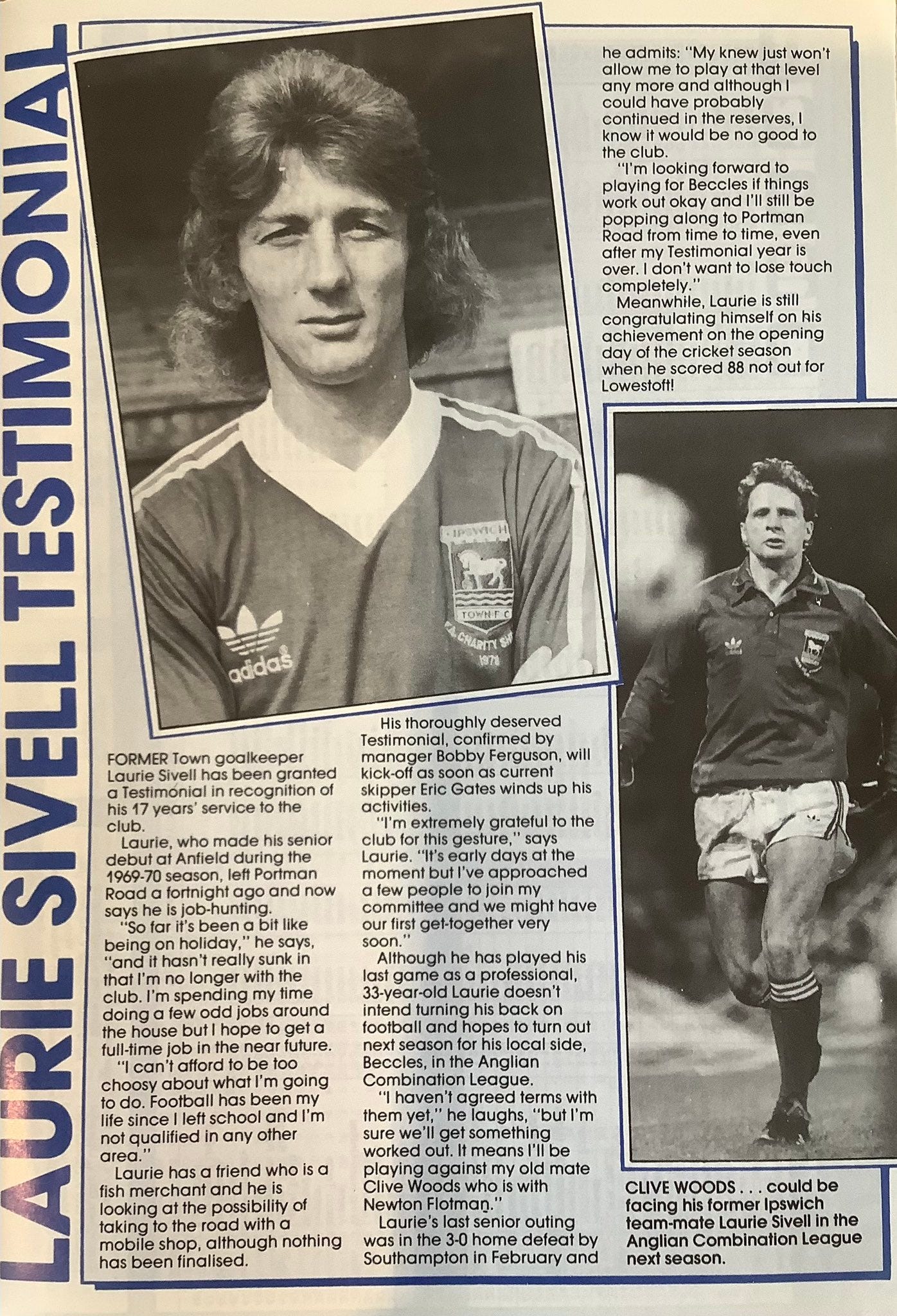
“Clive Woods fancied himself as a decent bowler but one of the young lads was knocking him all over the ground. I went and had a word in Woodsy’s ear and said to stand one up a bit to show him who’s boss. Sure enough he fired one in short and the lad just hooked it over the boundary for six. His name was Allan Border – I wonder what happened to him?”
As well as his Escape to Victory mementos, Sivell did pick up a fair few actual footballing honours, being a major part of an Ipswich squad that punched far above its weight with two Football League runners-up spots in 1981 and 82, the FA Cup in 1978 and UEFA Cup in 1981, as well as the Texaco Cup in 1973, Football Combination championship titles in 1973 and 1976 and the Suffolk Premier Cup in 1970.
“I was named as Daily Mail Footballer of the Week one year and got a fabulous trophy. Unfortunately I never got to see it in the paper because that was the week they were on strike so there were none printed!
“The season I remember best was 1974/5 when we finished third in the league (two points away from winning it), got to the League Cup quarter-finals and also the FA Cup semi – I was ever-present in all 56 games.
That included a four-match FA Cup quarter-final marathon against Leeds United, a heart-breaking semi-final replay defeat against West Ham United and a League Cup quarter-final replay defeat to Old Farm derby rivals Norwich City. April’s 2-1 defeat at Elland Road was their only reversal in their last 10 matches but was enough to hand the title to Derby County, who had a far inferior goal average.
“I never got to play at Wembley. The 1975 semi-final was the closest I got. However, we always did well in the Daily Express National Five-a-Sides, which were played at Wembley Arena. It used to be on TV and got crowds of up to 10,000.”
Ipswich were beaten on penalties in the 1972 final by Tottenham but won in 1977, beating Coventry City 3-1 in the final.
Apart from his lack of inches, Sivell’s only regret was missing out on the chance to play in America when ‘soccer’ was taking off there in the 1970s. “I was all set to join Detroit Express after Jimmy Hill asked Bobby Robson if I would be available. Terms had been agreed, the only proviso was that I couldn’t be released until we’d been knocked out of the FA Cup. Of course that was the year we won it, so by the time I was available the season had started and so it didn’t materialise.
“Trevor Whymark went over there to Vancouver Whitecaps and he keeps telling me how fantastic it was. I would have loved to play there. We went one pre-season and the Detroit Stadium was fantastic.”
The managers…
During a 17-year career at Portman Road, Sivell served under only three permanent managers – Bill McGarry, Bobby Robson and Bobby Ferguson.
McGarry used to frighten the hell out of me,” said Sivell. “Even seasoned pros were wary of him, so you can imagine how I felt as a young lad. He was a big believer in run, run, run and not so much ball work.
“I used to babysit for him with another apprentice Vaughan Carradice, a South African lad. Vaughan was in the Football Combination team with me but didn’t make it to the first team and went on to become a teacher. When McGarry went out he’d tell us there was a box of chocolates on the mantelpiece for us but we never dared touch it. Because he was such a taskmaster and having such a strict fitness regime, we thought it might be a test so left them alone. He never paid us for the babysitting – the chocolates were in lieu of cash so he got a real bargain!
“I was in a hurry to get out on to the training ground one day and just grabbed what I thought was a spare tracksuit. I did my usual diving about in it and it was a bit muddy, to say the least. It turned out it was Bill’s and he went absolutely berserk when he saw the state of it. He was so angry and almost reduced me to tears with his rant.”
Sivell was still an apprentice when Robson arrived at the club. “I remember vividly when he was introduced to us. He’d been at Fulham and was managing in Canada before he came. He turned up in a bright crimson suit with Brylcreamed hair. He was really good with us young players and knew how to spot a good footballer. It wasn’t just the youngsters he picked up, the few he did sign from outside always made a big impact –David Johnson, Allan Hunter, Paul Mariner, Arnold Mühren and Frans Thijssen for example.”
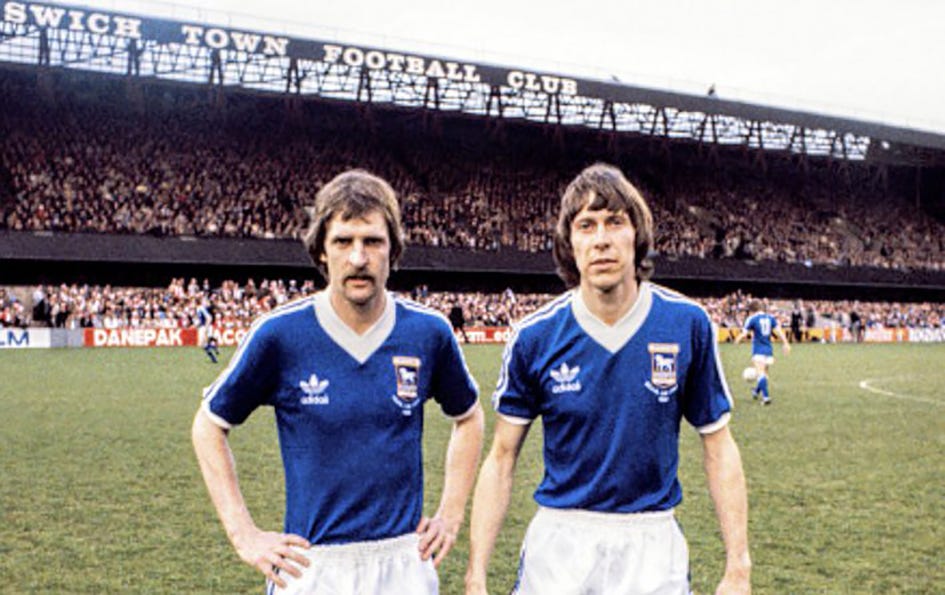
Indeed during his 13-year stay in Suffolk, Robson signed barely a dozen players from other pro clubs, relying on bringing through youngsters and picking up talent from the non-League scene.
“He wasn’t a big shouter but could if he had to. When he arrived we were really struggling. We played Leeds and got beat and the crowd wanted him out. They were chanting and there was a big fight in the dressing room with players that had been left out of the team. We had to pull Bobby off one of them. After that, he got rid of the cliques and started bringing in youngsters. His ability to spot a player was formidable and he focussed on developing youngsters. That was the catalyst and we went on to great things under him.
“He was really well read and always reading book about psychology. He wanted to understand not just football but also people, what made us all tick.”
Sivell so impressed Robson that he almost got him to join his team a second time.
“I had two games on loan at Lincoln City,” recalled Sivell. “I was due to play more during a six-week spell but it was a bad winter so only two games beat the weather – at Carlisle and Watford, who were then under Graham Taylor. I must have done alright there because when I got back to Portman Road, the boss called me into his office and said he was giving me a pay rise.
“When I asked what it was for, he said one of his scouts had been covering Carlisle and the only player he managed to recommend was the Lincoln goalkeeper – me! I suppose that saved him a transfer fee.
“The Lincoln manager was Colin Murphy and Lennie Lawrence was assistant. I was put up at the Railway Hotel and after getting back from one of the games treated myself to a small bottle of wine. The club went mad, because they were picking up the tab and couldn’t afford extravagances like that!”
It was under Ferguson that Sivell’s time at Portman Road came to an end.
“He was keen to keep me on but I knew my time was up,” said Sivell, who drew praise from his final boss in his testimonial brochure, with the former manager saying: “With a few more inches in height I believe Laurie could have become one of the top goalkeepers in the game and possibly earned his England cap. Some of his stops were unbelievable.”
A Gray day for Laurie
A lack of inches meant Sivell regularly needed to make full use of his other attributes and his bravery was never questioned, not least one March evening in 1976 in a 0-0 draw at Villa Park.
A stunning 89th-minute save from Chris Nicholl’s shot saw the ball bounce loose. Andy Gray raced in to try to get to it just as Sivell dived in head first. The blow broke the goalkeeper’s nose, knocked out three teeth and split both his lips in a line from the middle of his chin to a point just below his nostrils.
Seven stitches were put in the wound and manager Robson said the time: “Laurie is the bravest goalkeeper in the country but he is in one hell of a mess at the moment and we are afraid he could be disfigured. He lacks inches maybe but is never lacking bravery of VC criteria.”
So severe were the injuries, Robson refused to allow the press to take any pictures of Sivell.
Even Villa manager Ron Saunders praised Sivell. “He’s a bit brave and deserves all the credit going. It was his action that cost us an extra point.”
Sivell said: “It was so bad that Bobby banned my wife from seeing me for a few days and I had to stay in lodgings. Luckily they were run by a nurse and she kept me patched up.
Just afterwards, Bobby got a letter from someone in Birmingham saying the injury was all my own fault, Their logic was that if I’d been a ‘proper’ goalkeeper, I’d have caught the ball, not parried it. I was at full stretch and just got my finger tips to it! Perhaps those extra few inches I was missing might have save me!”
However, it was not the extent of the injury that rankled with Sivell but the fact that Gray did not apologise. “I know it wasn’t deliberate but he never said sorry to me. However, years later John Wark or Alan Brazil, I can’t remember which, told me they’d been talking to him and it came up in conversation and he asked to pass on his apologies. Better late than never!”
Another chat with Laurie Sivell… YouTube – Life’s A Pitch
A version of the interview appeared in Backpass magazine, July 2023.

